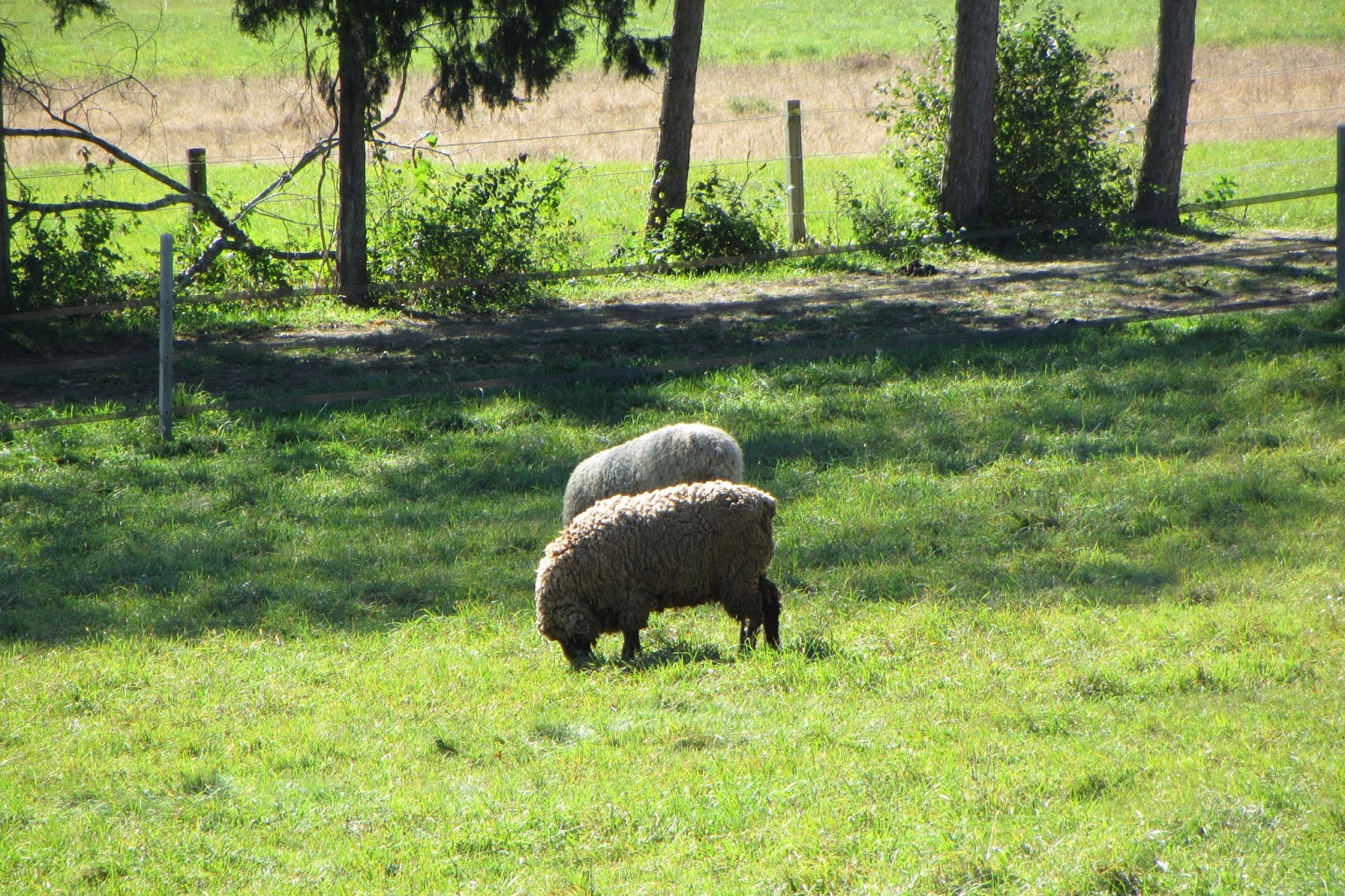You have likely already noticed them these past few years. After a brisk hike or relaxing family outing on your favorite Trustees' property, you feel (or sometimes just imagine!) that telltale slight itch or discomfort, or see that speck crawling up the back of your son's or daughter's shirt, which, upon further investigation turns out to be our least favorite nasty arachnid parasite - a tick! Or three! Recent years have brought an alarming profusion of black-legged ticks, aka 'deer' ticks, and a spike in Lyme Disease, to our fair Commonwealth. As professionals working largely in the outdoors, we are far too familiar with ticks of all varieties.
Despite that we hope you don't let the ticks win, and keep you indoors! A little preparation and vigilance goes a
very long way when it comes to detecting ticks: wear light colored clothing, check yourself often in the woods to see them and brush them off, and immediately change clothes (throw them in the dryer on high, too!) and check yourself carefully when you get home. Personally, I stay away from chemicals like permethrin or DEET, finding that light clothing and simple vigilance have kept me Lyme-free so far! But you may want to consider those as well.
One other piece of advice is to stay away from thickets of invasive Japanese Barberry! A) It's thorny so you probably don't want to be there anyways; and B) Japanese Barberry patches function as escape habitat for
white-footed mice, one of the primary host critters for ticks! Recent scientific research has proved the connection between mice, ticks, and barberry, and our own experiences bushwhacking on CR properties in places like Milton, Westport, and New Marlborough, certainly corroborate it. People often make a connection between deer over-population, ticks, and Lyme Disease, but with that note on mice, we'd like to insist that
deer have been framed as the main culprit (click for the story!) for our recent tick inundation and increase in Lyme Disease!
 |
| Open grassland and pasture on Fox Lea Farm in Rehoboth. |
Speaking of ticks, there is one CR property in Rehoboth that we love to visit, not only to catch up with its delightful landowners, but because we truly notice that there are a lot less ticks on the property! Peggy Dunn and Jim Rheinberger run Fox Lea Farm, and grow acres upon acres of organic hay, as well as raising horses, sheep, chickens, and heritage turkeys. One unique critter in which they specialize recently is the guinea hen. While these are often seen on high-end restaurant menus, we insist that their function is much more utilitarian on the land than on your plate! Why? Because guinea fowl are known insect pest connoisseurs and exterminators - and particularly fond of ticks!
 |
| Guinea fowl hard at work hunting ticks and other insects! |
Jim and Peg keep over forty guinea fowl on the property, sheltered in mobile coops. These are allowed free range around the property, but find sanctuary in a penned-off area with two watchful canine sentries - two beautiful Italian Maremma sheep dogs watch over the fowl, sounding the alarm when predators like red-tailed hawks soar by, or coyotes or foxes come to visit. Sadly, when the sheep dogs' watch lapses, tragedy can strike. Just recently they lost ten birds to a fox, when the dogs went to get fixed - mostly males who had the habit of roosting in the trees at night rather than seek shelter in the coops which made them prime targets for owls and foxes.
 |
| Maremma sheep dogs, Lily and Rio, guard the guinea fowl from birds of prey and other predators. |
Horses and sheep round out the collection of animals at Fox Lea, and we have been lucky enough to visit right after lambs have been born, and helped feed them from bottles! The latest news - one of our favorite four-legged friends, elder matriarch (age 12!) Buttons the ewe, just had her tenth and probably final lambing and gave birth to two healthy males. Buttons does not possess what you would call a "traditional" sheep appearance but this is part of her... charm.
 |
| Buttons (R) is the elder sheep matriarch of Fox Lea Farm. A "normal" looking flock-mate (L) accompanies her. |
 |
| Landowner Peggy and volunteer intern Justina feed a lamb (not one of Buttons's) at Fox Lea in March. |
Fox Lea Farm epitomizes what we aim to protect with conservation restrictions. The farm boasts a scenic and low-impact working landscape which protects water quality in the Palmer River. Its 70 acres are protected forever from development, allowing hay production and other agricultural uses, while protecting riparian (vegetated land by riverbanks) habitat for a variety of state-protected animals. Working farm uses are allowed and encouraged by the conservation restriction agreement, and help preserve this tradition in southeastern Massachusetts from fading away. It is stewarded by conscientious landowners who are using innovative methods to grow hay without chemicals (Peggy is a former research scientist whose compost fertilizing methods are home concocted, producing live cultures, and are natural, and environmentally sensitive), and are dedicated to protection and improvement of the land's conservation values in the present, setting it up for productivity and perpetual conservation. While Fox Lea is private property, and
not publicly open, in this case the conservation values listed above provide substantial public benefits. The Trustees are proud to partner with landowners like Peggy and Jim to protect privately-owned land across Massachusetts forever, some of whom bust arachnid parasites through innovative means like guinea fowl!











